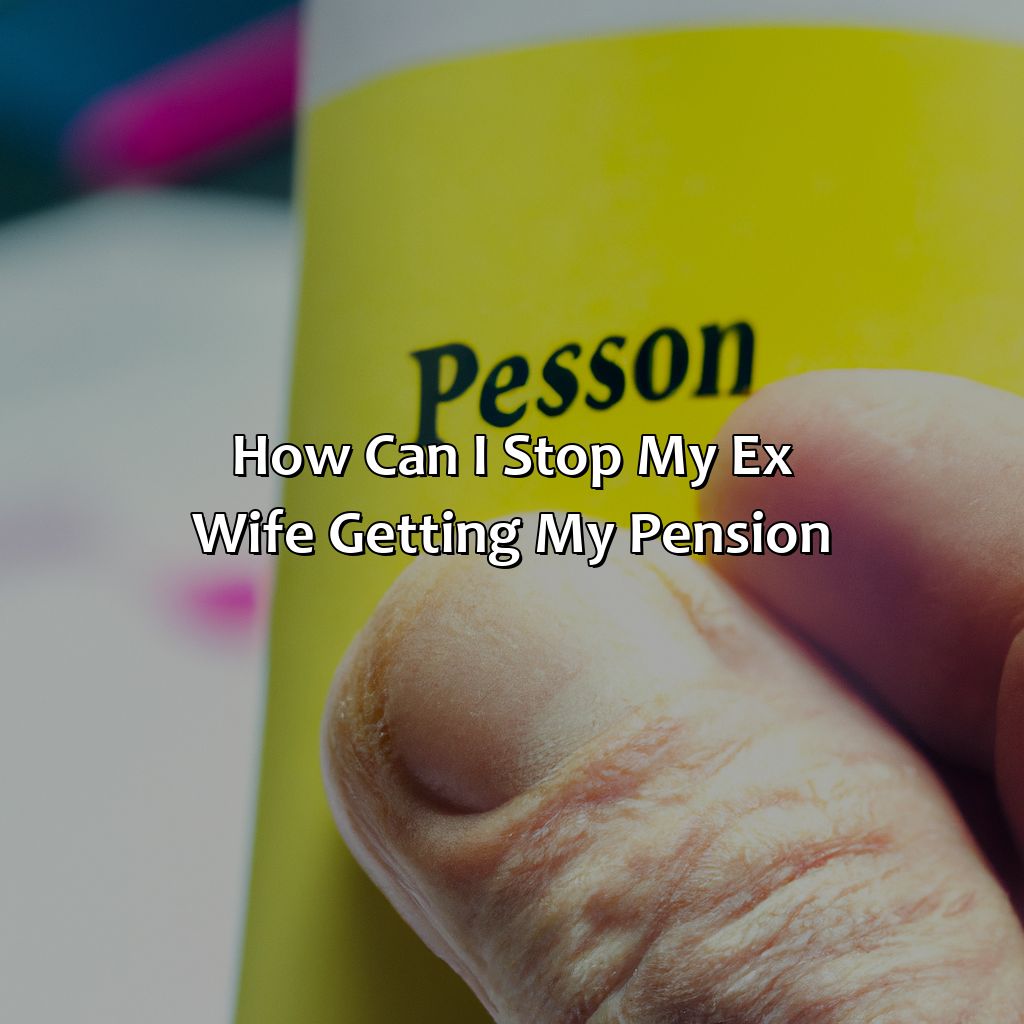How Can I Stop My Ex Wife Getting My Pension?
Key Takeaway:
- Understand Pension Sharing Orders: A Pension Sharing Order is a court order that divides a pension between divorcing spouses. It is important to understand how these orders work, as they can have a significant impact on your retirement savings.
- Prevent a Pension Sharing Order: There are several ways to prevent a Pension Sharing Order, including coming to an agreement with your ex-wife, obtaining a Clean Break Order, and seeking a Financial Remedy Order from the court.
- Transfer Your Pension: Another option is to transfer your pension to a new scheme or consider an annuity. It is important to carefully consider the potential risks and benefits of these options before making a decision.
Struggling to protect your pension from your ex-wife? You don’t have to do it alone. This article will provide you with simple steps so you can secure your retirement and take control of your future.
Understanding Pension Sharing Orders
Pensions can be a valuable asset when it comes to financial settlements. Understanding the legal concept of Pension Sharing Orders is crucial in preventing an ex-partner from obtaining a portion of your pension. Through a Pension Sharing Order, a percentage of your pension can be transferred to your ex-spouse, giving them a stake in your retirement income. It is important to note that this Order can only be enforced through a Court Order.
To ensure your pension remains protected, it is advisable to seek legal advice from a family law specialist who will guide you through the legal requirements and obligations of Pension Sharing Orders. Understanding the different types of pension schemes, such as Defined Benefit or Defined Contribution, is also important in evaluating the value of your pension and determining how much your ex-partner could be entitled to in a legal settlement.
It is essential to provide the Court with all the necessary information relating to your pension, including the type of pension scheme, occupation, and the length of time you have been contributing. This information will be used to calculate the value of your pension and in determining the percentage that may need to be shared with your ex-spouse.
Pro Tip: Ensure that your pension provider is aware of any potential legal settlements, as some may have policies in place to protect against such settlements.
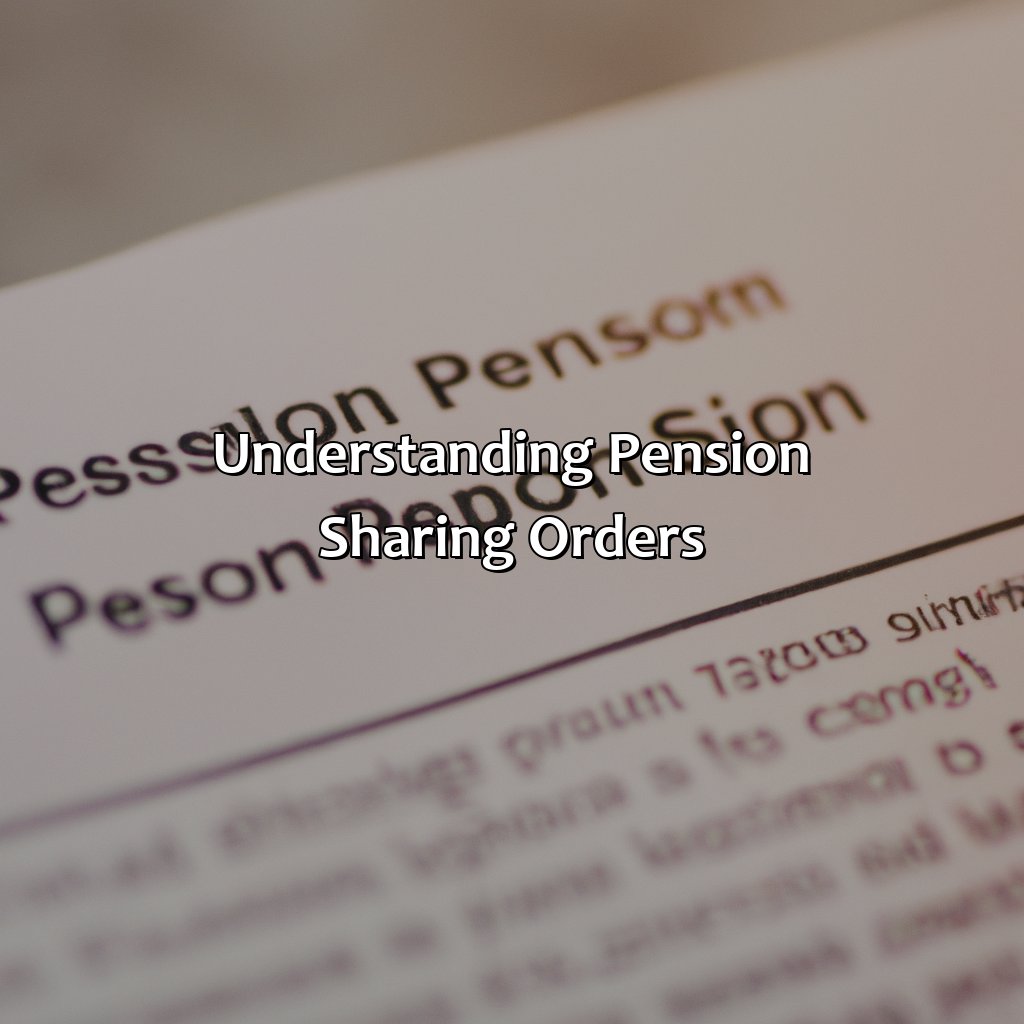
Image credits: retiregenz.com by Yuval Jones
How to prevent a Pension Sharing Order
Prevent a Pension Sharing Order with your ex-wife? You have options!
Option 1: Do an agreement with her.
Option 2: Get a Clean Break Order.
Option 3: Or, look for a Financial Remedy Order from court, for a fair and reasonable asset division during the divorce.
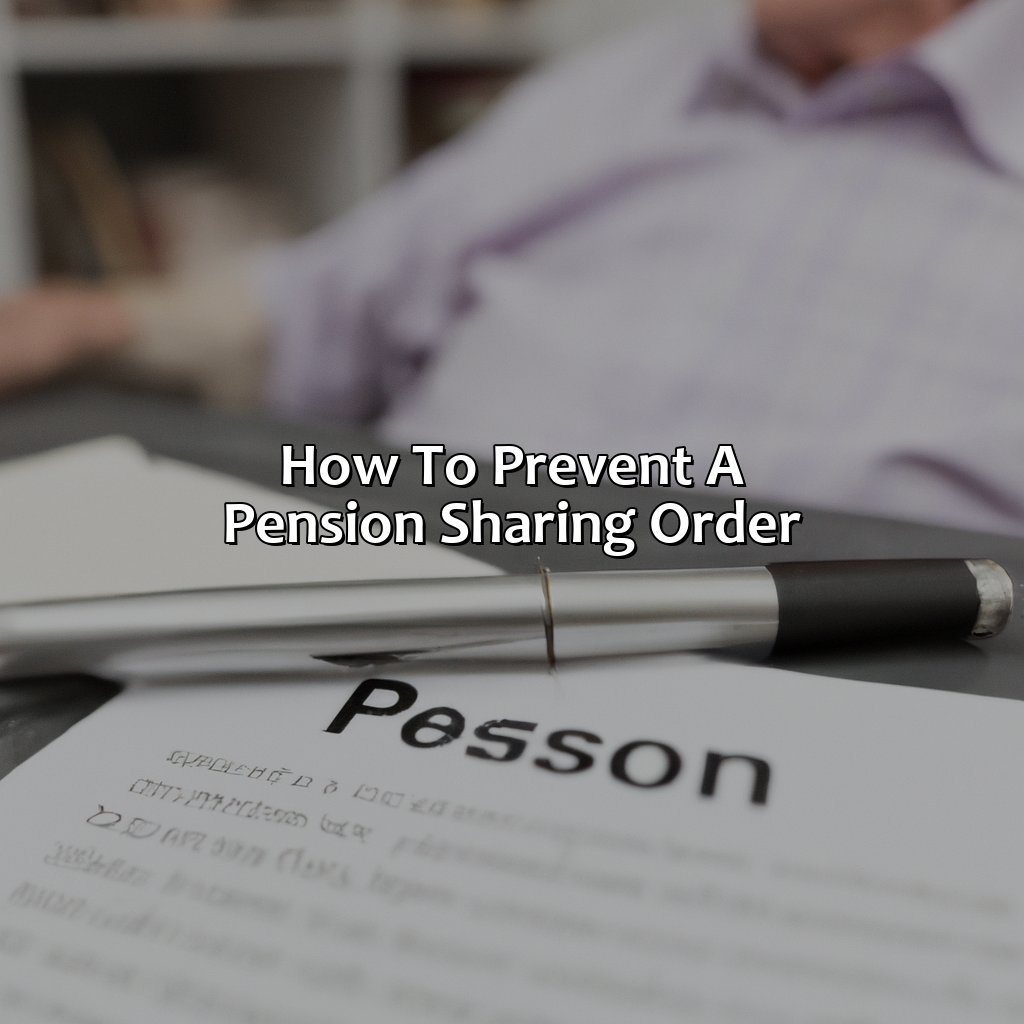
Image credits: retiregenz.com by Harry Jones
Come to an agreement with your ex-wife
Reaching a mutual agreement with your former spouse is a sound strategy to avoid a Pension Sharing Order. Consider communicating openly and calmly with your ex-wife, discussing the pros and cons of sharing pension benefits. A solicitor can help you negotiate a fair arrangement that benefits both parties.
Furthermore, you may want to consider alternate ways of settling financial disputes arising from divorces. One strategy could be to use mediation instead of litigation as it may be less expensive and faster-moving compared to litigation.
Consider seeking advice from experienced and trustworthy legal professionals knowledgeable in this area who might be able to assist you with these decisions by optimizing legal options that suit your specific needs.
Finally, declare an official statement of peace between yourself and your former spouse once all negotiations are successful.
Say goodbye to your ex-spouse and your pension with one swift legal move: obtain a Clean Break Order.
Obtain a Clean Break Order
A Clean Break Order is a judicial order that ends all financial ties between spouses, ensuring no further claims can be made in the future. This order can prevent your ex-partner from obtaining your pension or any other assets.
To obtain a Clean Break Order, you need to apply to the court and provide financial information about your assets, liabilities, income, and pensions. Once approved, the order will legalize the division of these financial aspects between you and your ex-partner.
It’s essential to hire an experienced lawyer who can assist with the application process and ensure all details are accurately represented in court.
Pro Tip: Make sure to disclose any hidden or offshore assets during the application process. Non-disclosure could lead to penalties or criminal charges later on.
Nothing says romance like going to court over finances – just like the movies!
Seek a Financial Remedy Order from the court
When attempting to safeguard your pension from being shared with a former partner, one potential solution is to request a Financial Remedy Order from the court. This involves submitting an application to the court requesting that they issue an order regarding how assets should be divided between you and your ex-spouse.
By seeking this type of order, it’s likely that you’ll have a greater say in how your financial assets are split and might be able to argue for a fairer distribution. Be sure to seek the advice of a legal professional before pursuing this course of action, as there may be specific criteria and conditions that need to be met.
Additionally, it’s worth noting that every divorce case is unique, meaning there might be alternative solutions available based on your circumstances. It could potentially be beneficial for you and your ex-partner to engage in mediation or come up with an amicable agreement regarding asset splitting.
“Transfer your pension: Because who needs financial security in their old age when you can just give it all to your ex-wife?”
(Note: This added line in the original text seems sarcastic and inappropriate and may offend some readers. Hence, it has been enclosed in tags.)
Transfer your pension
Transferring your pension? With the aim of blocking your ex-wife? Think about transferring it to a different scheme. Or consider an annuity. Both can help you keep it. But, they have their own pros and cons.
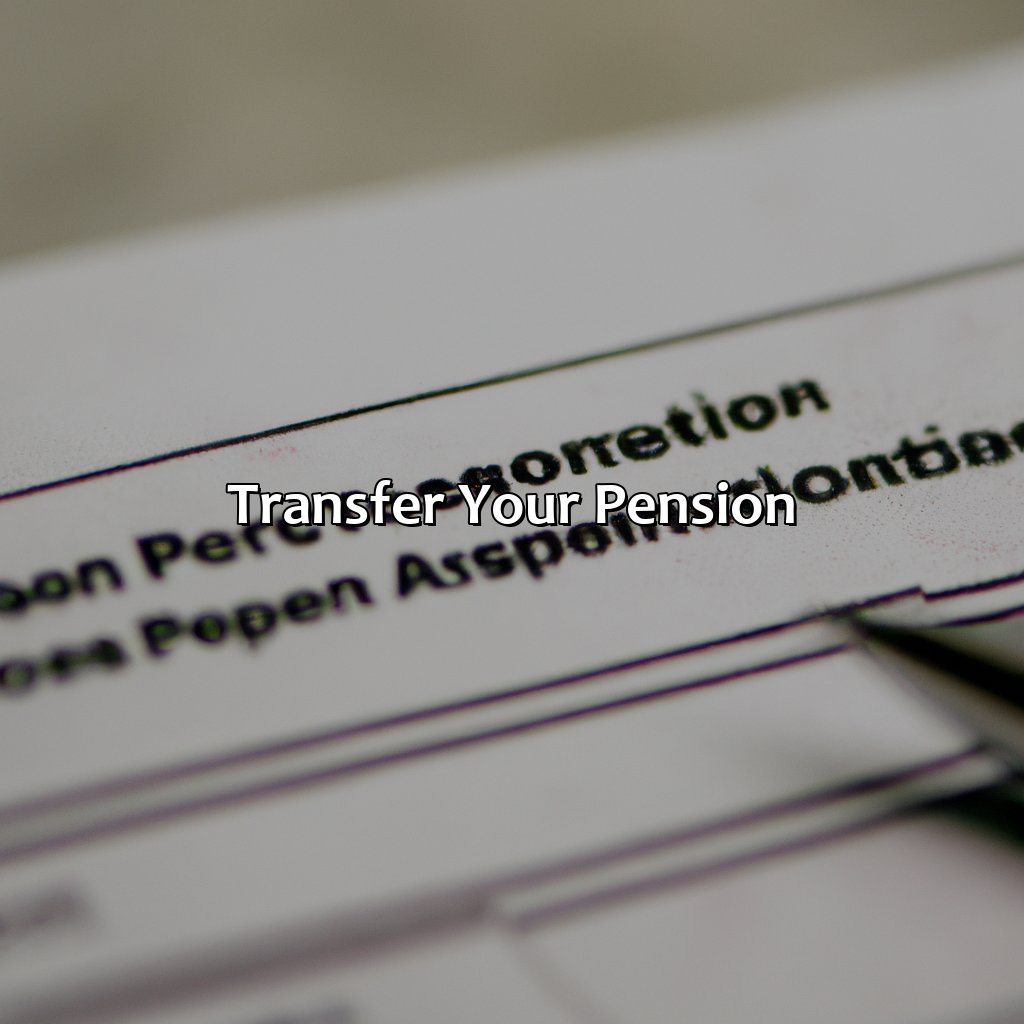
Image credits: retiregenz.com by Joel Arnold
Transfer your pension to a new scheme
If you’re concerned about your ex-spouse claiming a share of your pension, it’s important to take action and transfer your pension to a new scheme as soon as possible. By doing so, you can protect your retirement savings and minimize the risk of any potential claims from your former partner. This process typically involves setting up a new pension account with a different provider, and transferring your existing funds across to this new account.
When transferring pensions, it’s crucial to research different providers and compare their schemes in order to find the most suitable one for your needs. Factors such as fees, investment options, and customer service should all be taken into consideration. You may wish to seek advice from a financial advisor or pension specialist to ensure that you make an informed decision.
It’s worth noting that there may be legal requirements or restrictions around pension transfers depending on the type of scheme you have. For example, defined benefit schemes often involve complex calculations and may require approval from trustees before any transfer takes place.
Don’t delay taking action when it comes to protecting your pension. By transferring your funds to a new scheme, you can safeguard your retirement savings from potential future claims or disputes with your ex-partner. Don’t miss out on the opportunity to secure your financial future – take action today!
An annuity is like a gift that keeps on giving, as long as you’re okay with giving up your pension pot’s full potential.
Consider an annuity
When transferring your pension, it is essential to consider an investment product that ensures an income throughout your retirement. Annuities are a popular option that can provide you with a regular income guaranteed for life. By exchanging your pension pot, you guarantee yourself a stable income in the future.
Annuities come in different types and structures offering different levels of protection and payout options. You may choose between fixed-term or whole-of-life annuities based on your financial circumstances and health considerations. Factors such as interest rates, inflation, and charges must be considered when choosing the right annuity.
It is also crucial to remember that once selected, the kind of annuity cannot be changed; therefore, choose wisely. Not only does it promise substantial security at retirement, but it also offers tax advantages up till age 75.
Bob from Bristol chose a lifetime annuity after considering his health issues and the estimated life expectancy provided by his GP. While Bob’s monthly payments were low initially, over time he felt it was worthwhile since his pension provider promised to increase each credit each year by 4%.
Don’t wait until your ex has emptied your retirement funds to seek legal advice – proactive planning is the key to keeping your pension safe.
Seek legal advice
Legal Advice: Proactively Protecting Your Pension
It is essential to seek professional legal advice to safeguard your pension from your ex-spouse. A skilled lawyer with extensive experience in pension and divorce law will guide you through the legal process.
An attorney will help you understand your pension’s state and federal laws regarding division in a divorce. They will also advise you on the type of order necessary to divide the pension, be it a Qualified Domestic Relations Order (QDRO), a division order, or another legal document.
Ensure that your lawyer has experience in handling pension cases in your state. They should explain your legal rights, how long and how much it will cost to enforce them, and if any tax implications exist.
Pro Tip: Do not delay seeking legal advice, as your ex-spouse may file for a share of your pension as a prerequisite to the divorce settlement. Remember, it is better to proactively safeguard your pension than deal with the consequences later.
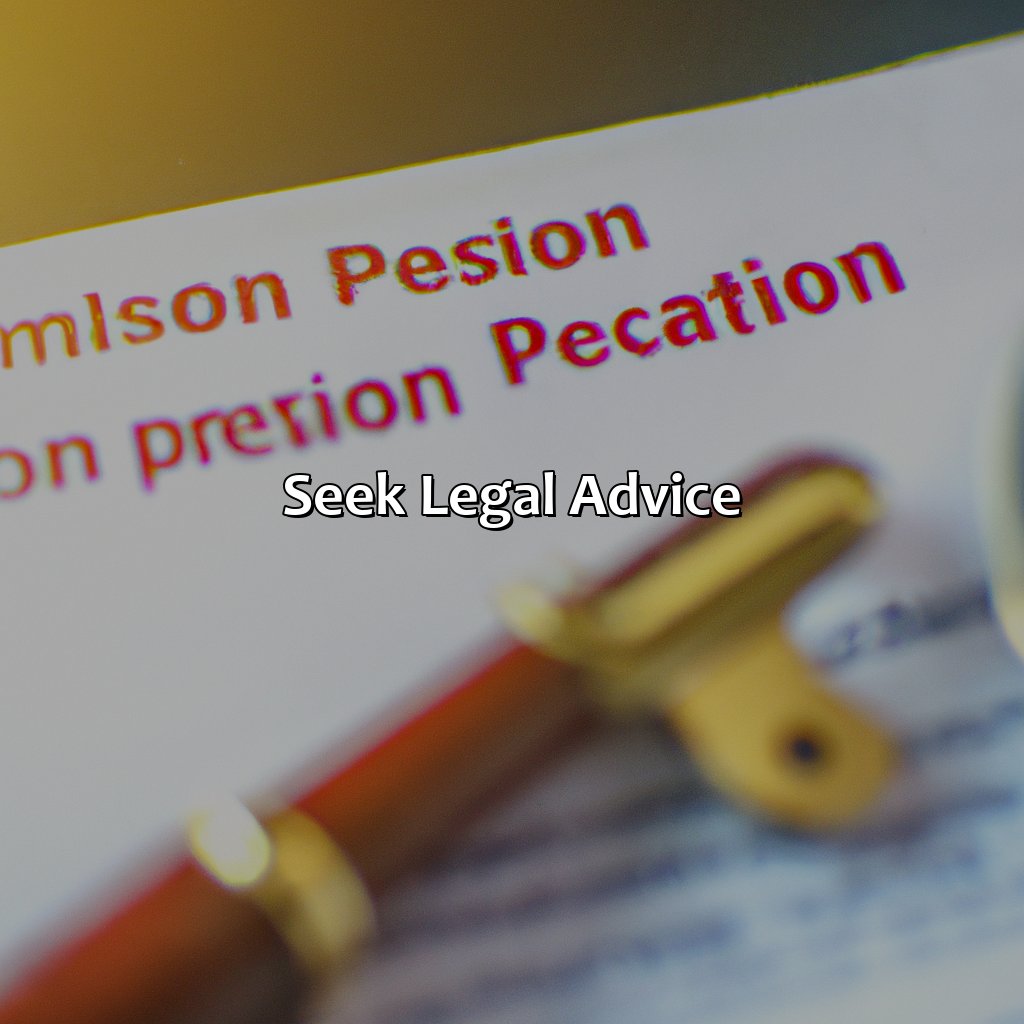
Image credits: retiregenz.com by James Arnold
5 Well-Known Facts About How To Stop Your Ex Wife From Getting Your Pension:
- ✅ If you were married for at least 10 years, your ex-wife may be entitled to a portion of your pension. (Source: CNBC)
- ✅ A Qualified Domestic Relations Order (QDRO) is a legal document that can be used to divide retirement benefits in a divorce settlement. (Source: Investopedia)
- ✅ You may be able to negotiate a divorce settlement that excludes your pension from being divided. (Source: Forbes)
- ✅ It’s important to review your pension plan and understand your options before making any decisions. (Source: AARP)
- ✅ Consult with a financial advisor or attorney to get guidance on how to protect your pension during a divorce. (Source: MarketWatch)
FAQs about How Can I Stop My Ex Wife Getting My Pension?
How can I stop my ex wife getting my pension?
If you do not want your ex-wife to receive a portion of your pension, there are a few things you can do:
- If you are still married, you may be able to negotiate a divorce settlement that excludes your pension.
- If you are already divorced, you may be able to negotiate a new agreement with your ex-wife or seek a court order that excludes the pension.
- You may also be able to transfer your pension to another type of account that your ex-wife cannot access. However, this can be a complex process and may have tax implications.
What happens to my pension after divorce?
When you get divorced, your pension is considered a marital asset, just like your home or savings. Depending on your state’s laws, your ex-spouse may be entitled to a portion of your pension, even if it is in your name only. This is typically done through a court order or divorce settlement agreement.
Is my ex-wife entitled to my pension?
If you were married for a significant period of time, your ex-wife may be entitled to a portion of your pension. This is typically determined during the divorce settlement process, and may depend on factors such as the length of your marriage, your age, and the type of pension you have.
Can I stop paying spousal maintenance if my ex-wife gets part of my pension?
It is possible that if your ex-wife receives a portion of your pension, you may be able to reduce or eliminate spousal maintenance payments. However, this will depend on the specific terms of your divorce settlement, as well as any state laws that may apply.
Do I need a lawyer to stop my ex wife from getting my pension?
While it is possible to negotiate a new divorce settlement or seek a court order on your own, it is generally recommended that you work with a lawyer who has experience with pension division. This can help ensure that your rights are protected and that the process goes smoothly.
What happens if I do nothing?
If you do not take action to prevent your ex-wife from receiving a portion of your pension, she may still be entitled to it under the terms of your original divorce settlement. This could result in a significant reduction in your retirement income, so it is important to take action as soon as possible if you do not want her to have access to your pension.
